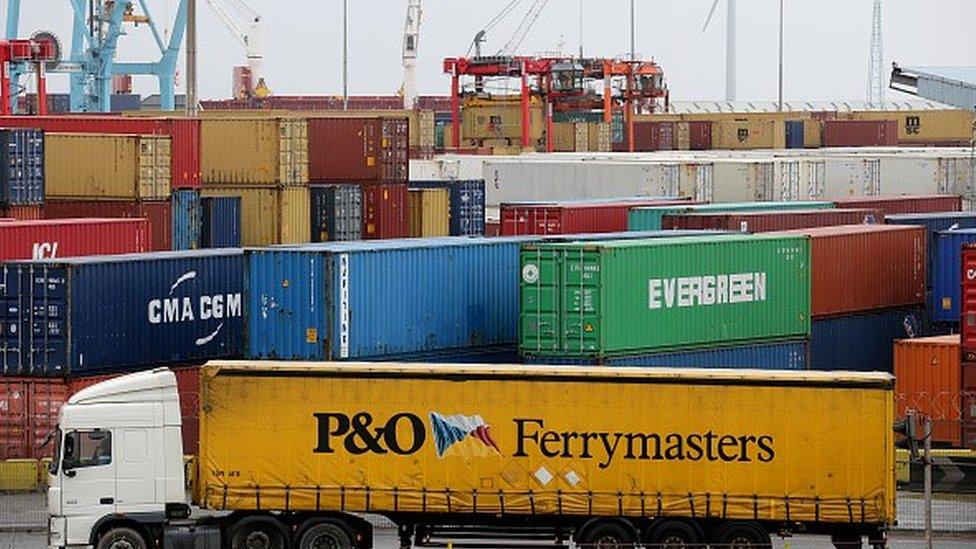Size matters in business Brexit debate
- Published

Businesses can't vote. No matter how big or powerful, they are not allowed into the polling booth. They do, however, have a voice which, by and large, has been singing a tune called Remain.
When it comes to the referendum it's clear that size does matter. There are some exceptions (JCB chairman Sir Anthony Bamford and Sir James Dyson) but the rule of thumb is this: the bigger the business, the more likely it is to be in favour of staying in the EU. Ford, BMW, JP Morgan, Easyjet, Microsoft, HP, Rolls-Royce, Virgin and many more have written to their staff over the last few weeks to lay out the risks of an exit.
The polling bears out this difference between big and small. A poll among CBI members, who tend to be larger employers, showed 77% favouring Remain with just 6% favouring Leave. The last available poll from the Federation of Small Business showed a much more even split with 47% preferring to stay in and 41% wanting out.
Single market
The reason for this marked difference could be the relative importance big and small business place on membership of the single market. For companies like Ford, which exports bits of cars to Europe, gets them back again, adds a few more bits and then exports them again, friction-free trade with a bloc of 500 million customers is crucial.
That kind of access, or something close, may be achievable post Brexit - but that's far from certain. I am loath to trot out the dreaded cliché that businesses don't like uncertainty - but if it fits, sometimes you have to wear it.

The UK construction industry says a skills shortage means they need to hire migrants
For small businesses, the single market matters less, as very few of them export to Europe and they may be able to ditch some of the red tape that comes with being part of a 28-nation bureaucracy. Those that do export would have to follow EU rules anyway without any input into the rule making process.
Skills
Another priority for businesses is finding staff. According to government figures there are currently 2.1 million EU nationals working here in the UK and yet the unemployment rate is just 5% - very near what most economists would consider full employment.
The Polish builder, for example, has become a fixture in the national psyche - could we do without him?
According to the Construction Industry Training Board the UK has a severe skills shortage in the building trade.
Some contractors say higher wages in the sector would tempt more UK nationals into the trade and that's how a labour market should work rather than relying on a limitless supply of cheap labour.
Many have characterised this referendum as a tussle between the economy and immigration. You may damage the economy by leaving but it's the only surefire way of bringing immigration under control. This is not a dilemma that worries most big businesses as they benefit both ways from remain - more customers and more workers to choose from.
The weight of business opinion is firmly with Remain but as I said, businesses can't vote. We'll find out on Friday morning whether workers share business owners' enthusiasm for the free movement of goods, services, capital and, most divisively, people.